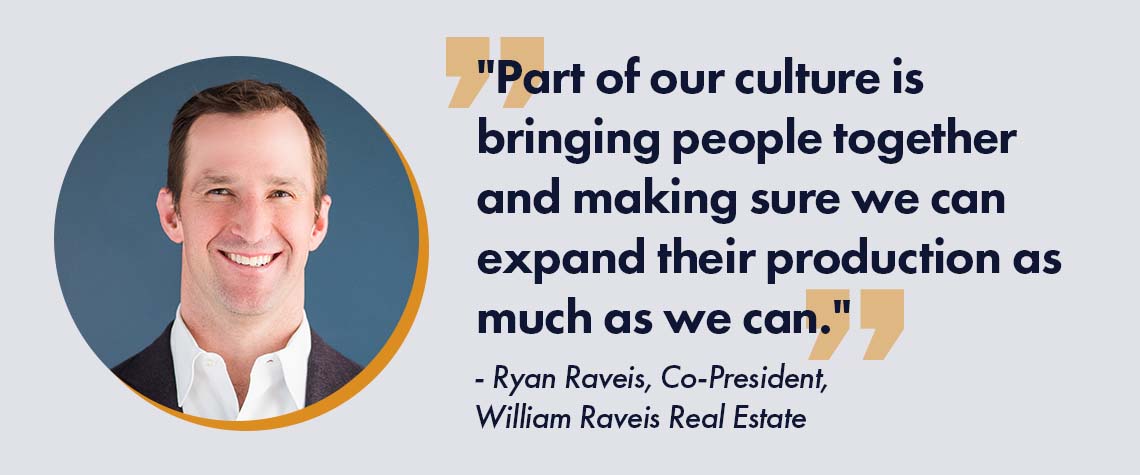While a company considered for acquisition may be rife with great attributes, it’s ultimately about ensuring a good fit between both buyer and seller. If cultures and business models don’t pair well, that could lead to a large churn of employees, which could lower the value overall.
As Adams notes, understanding the core values and vision of a company prior to merging can mean a much smoother transition.
“Strong leadership with a reputation of integrity and longstanding relationships help secure the investment of people,” she explains.
Golden can’t stress this point enough: it’s critical to make sure there is a culture fit when acquiring a brokerage. That means understanding the brokerage’s culture, which can be done by getting to know the brokerage’s key stakeholders, doing your research and asking the right questions.
 “Also, the business models need to pair up,” he adds. “For example, if you’re a full-service broker in a traditional-split model, you don’t want to acquire a brokerage with a desk-fee model, unless you feel that you can integrate that model into yours. You really don’t want two different models in the same market.”
“Also, the business models need to pair up,” he adds. “For example, if you’re a full-service broker in a traditional-split model, you don’t want to acquire a brokerage with a desk-fee model, unless you feel that you can integrate that model into yours. You really don’t want two different models in the same market.”
Slusser recommends spending time together to determine if there are similar offerings and commission splits. “It’s very hard to make an acquisition work if the seller is going to provide less to the agents in the way of tools or compensation,” he says.
While culture reigns supreme in today’s real estate industry, many organizations attempt to have an overarching culture but may have different cultures from branch-to-branch. Sometimes, they may even have agents operating within different models.
 “We’ve seen a lot of bad acquisitions in the past—small and large—and it has everything to do with attrition,” Slusser explains. “What is the culture like for the organization, and how is that culture going to expand to the acquirer? Oftentimes, a majority of agents leave because they’re not interested in the culture of their new home. A seller really needs to think about the efforts to retain agents.”
“We’ve seen a lot of bad acquisitions in the past—small and large—and it has everything to do with attrition,” Slusser explains. “What is the culture like for the organization, and how is that culture going to expand to the acquirer? Oftentimes, a majority of agents leave because they’re not interested in the culture of their new home. A seller really needs to think about the efforts to retain agents.”
“For Howard Hanna, the overall culture that we uphold—and must be evident in a potential future acquisition—is that the leadership of the brokerage firm must care as much about their employees, agents and managers as they do about themselves,” Hanna says.
At John L. Scott Real Estate, McBride characterizes the company’s core value as “Living Life as a Contribution,” which is centered around the idea of living your life in a way that contributes to the wellbeing of others.
“We are upfront with this core value in our merger and acquisition conversations and observe how ‘Living Life as a Contribution’ lands with the broker/owners we engage,” he says. “It is key that our core values are in alignment with the culture of the brokerage we are in conversation with.” The company also looks at a brokerage’s business model to determine the similarities and differences to itself.
“We are open to some differences, but want to avoid a situation where a merger or acquisition would ‘rock the boat’ for their existing team,” McBride says. “A smooth transition is crucial to avoid significant turnover with a merger or acquisition.”
Of course, there are some business models that just aren’t a fit. For instance, William Raveis Real Estate is a full-service company that provides services to agents that go above and beyond what many companies offer.
“We take a bit of a white-glove concierge approach, so if someone is not used to that and just wants a 100% commission split, that won’t be a good deal for us,” says Raveis. “Part of our culture is bringing people together and making sure we can expand their production as much as we can.”
Durkin notes that at the end of the day, you have to trust your intuition. While a deal might look great on paper, or someone answers all the questions the right way during a lunch meeting, ultimately, you have to trust your intuition. If it doesn’t feel like the right match, you have to be willing to walk away.



